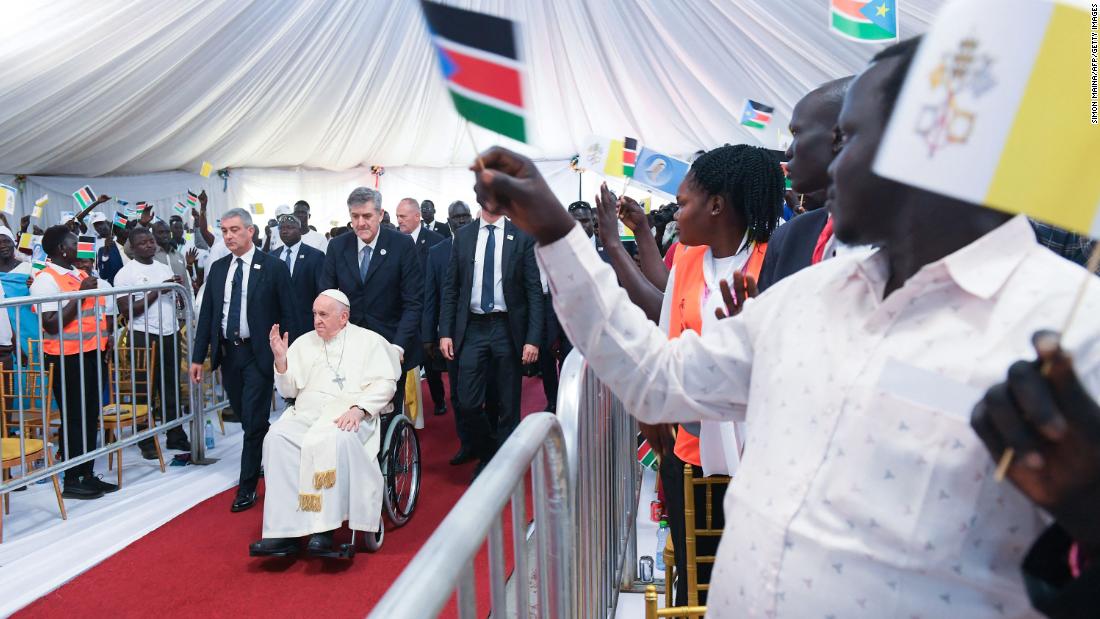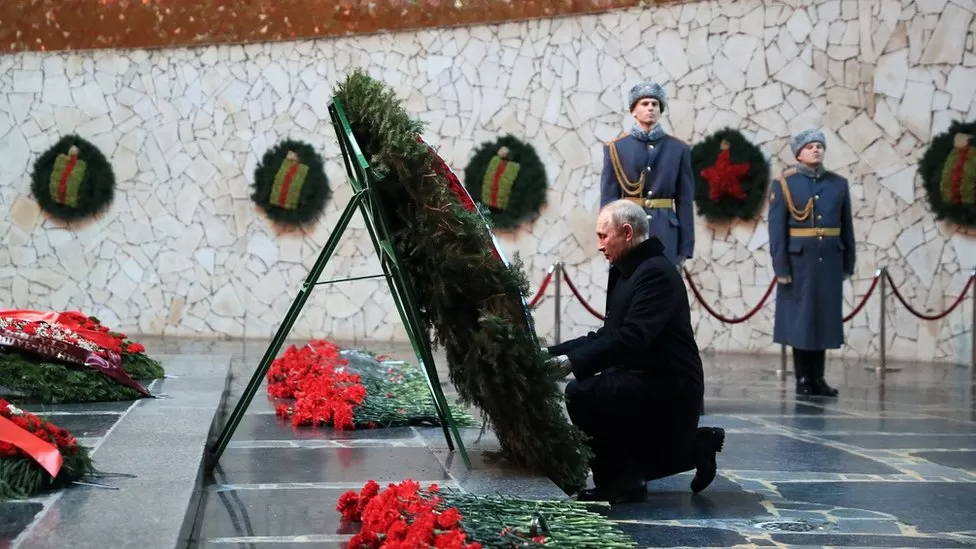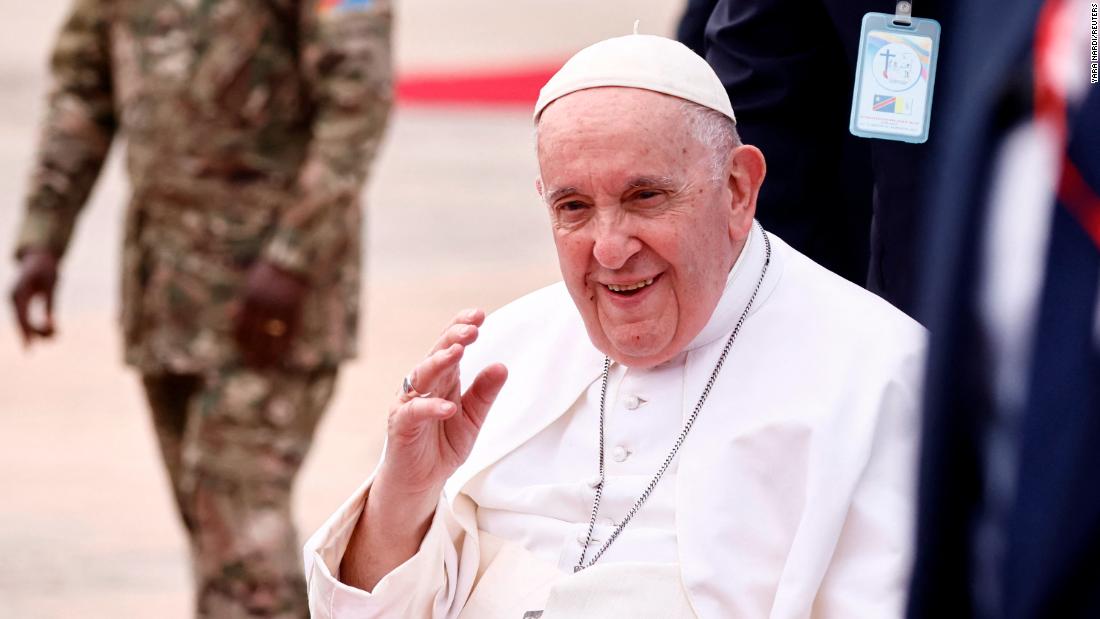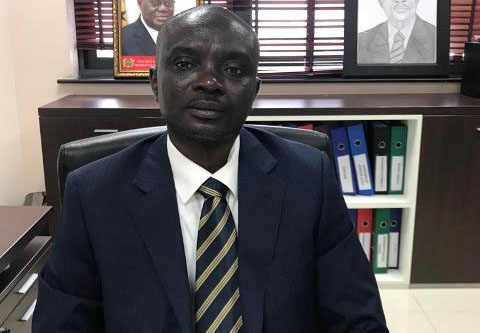The escape story of Ghanaian footballers in war-torn Ukraine
Over four million people have been displaced by the Russia-Ukraine conflict, which has also disrupted the lives and careers of several footballers, writes Pulse Sports’ Emmanuel Ayamga…

Over four million people have been displaced by the Russia-Ukraine conflict, which has also disrupted the lives and careers of several footballers, writes Pulse Sports’ Emmanuel Ayamga…
Somewhere in Ukraine, little Katerina stands helpless, hopeless and hapless – beside her even more dejected mother. At just two years of age, she probably isn’t aware of the carnage and blood being spilled within and outside the city.
Gently strapped in her diapers, her bareback visibly displays some characters. Those characters, written in blue ink, are contacts of family members transcribed on her back by her mother, in the hope that if she (mother) gets killed and Katerina survives, her child would eventually end up with a relative where refuge would be guaranteed.
Around the same time, several kilometres away in the Poltava region of central Ukraine, Ghanaian footballer Najeeb Yakubu had just woken up to a text from his club, FC Vorskla Poltava. The message was straightforward: “Stay home!”
Najeeb, a former Ghana U17 national team player, was born in New Town, a suburb of Accra, but has been plying his trade in Ukraine over the last four years.
Since joining Vorskla Poltava in 2018, he has never seen anything like this. Confused and curious, the 21-year-old tried to get a better understanding of what was happening, and he would soon realise his worst fears.
“Nothing was working,” he told Pulse.com.gh. “No cars, no train, no bus, the banks are not working, the restaurants are not working.”
It was a weird day. The much-talked-about invasion of Ukraine by Russia had finally happened and, unfortunately for the defender, Poltava was one of the cities targeted. On February 24, 2022, Vladimir Putin ordered the first strike and Ukraine has not known peace ever since.
Russia’s foremost bomb attack targeted Ukraine’s capital, Kyiv, before separate explosions were recorded in other cities across the central European nation in the days that followed. The chaos of it all forced women, children and families to start fleeing the country.
Day after day, the various cities became depopulated; the ginormous civilian settlements steadily overtaken by armed Russian military on the streets.
Those who took off in the first few days of the conflict managed to find their way to Poland and other safe countries to seek refuge. The latter-day escapees, however, weren’t so lucky.
Just like Najeeb, another Ghanaian footballer, Raymond Frimpong Owusu, was also taken by surprise at his base in Luhansk in eastern Ukraine. Born in Ghana’s Garden City of Kumasi, Frimpong only moved to Ukraine in 2021 after impressing at the Gold Coast Football Academy.
Having never witnessed a war in his life, the Zorya Luhansk forward initially took everything he saw in the news for granted.
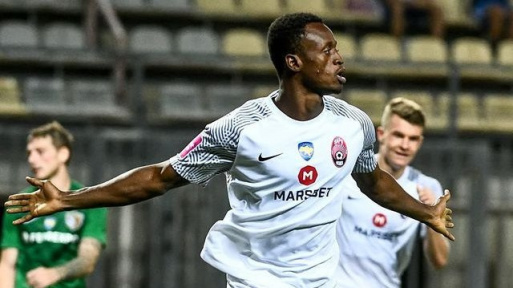
“The conflict is happening in Kyiv, [and] I’m staying far away from that zone,” he thought. He would soon realise that his reasoning was utopia and as the deafening noise from exploding bombs drew nearer and nearer to his residence, he knew the situation was serious.
Terrified by the happenings around him, the 19-year-old decided to get out of Ukraine to preserve his life.
"I planned to stay in Ukraine,” Frimpong confessed to German tabloid Ruhr Nachrichten, “but then bombs began to fall, rockets exploded. I heard them with my own ears. The war came very close and I was scared. I decided to flee.”
Persons who tried to leave Ukraine via Poland were met with several challenges, but it was the easiest way out of the war-torn country compared to other routes. Frimpong escaped to Germany via Poland by bus – a journey he describes as “scary.”
“The road to Germany took a lot of energy. It's scary, I've never seen war before,” the teenager said.
Frimpong was among those who got out of Ukraine early before the conflict escalated. At the time, not many people had resolved to leave the country, but when the cities got more and more dangerous to inhabit, the Polish border became a rowdy scene.
A Cameroonian footballer who plays in the amateur ranks in Dnipro said exploitation became the order of the day. “The place was crowded with many people, many Africans, including my football colleagues from Cameroon,” he told the Newframe on condition of anonymity.
“Automatically, the transportation fare increased because those drivers saw it as an opportunity to make money. Four of us paid $200 for a distance of 71km. The drivers covered just 15km and abandoned us. We trekked 56km.”
After trekking in frigid conditions to get to the Polish border, they were fazed by frustrating tactics from the security guards on duty.
“Security put Africans on one side and allowed just whites to cross,” the Cameroonian player revealed. “We were stranded at the border for one day. Some people for two days, some three days. The condition was unchanged. We had to return to the train station.”
According to him, racist treatment was also meted out to the Black people among the fleeing party, with White folk given preferential treatment. In his words, “we the Blacks were not allowed to sit in the train” and “we travelled from Lviv for 24 hours standing in very tight spaces” and “they preferred giving seats to dogs rather than a Black guy.”
“The process was terrible. I feel like I should cry while explaining because I went through difficulties,” he further complained. “Only white women and their children were allowed to travel. They pushed us and even threatened us with guns. They threw insults at us. We had to fight to get space inside the train, to make it through to safety.”
Najeeb’s case wasn’t that bad, though, despite all the roughness. He too wanted to flee, but he neither knew whom to seek help from nor where to go.

That changed when he was contacted by Fentuo Tahiru – a Ghanaian sports journalist who works with Accra-based Citi FM – for an interview, where he narrated his ordeal in Ukraine.
“Yesterday when I went to training, everything was fine,” Najeeb said during that interview in late February. “This morning, I woke up to the news [of the attack]. They [his club] sent an emergency message that there wouldn’t be training and that we should stay at home and be safe. I called my friends in the city that was attacked and they said this is not a movie, it’s serious.”
Gripped by fear of the unknown, Najeeb had begun making plans to seek refuge elsewhere and he wasn’t alone. The conflict brought the people of Poltava, where he was living, together and their survival instincts kicked in. They were ready to do anything to get out of Ukraine; desperate to go just anywhere.
“We’re just confused and we’re stuck here,” Najeed told Fentuo. “We don’t know what to do. We have to move as soon as possible but how can we? We are stuck here.”
The plan was to head to the nearest land borders and leave the country as soon as possible. The reality, though, was that the closest was the Polish border and even that was 15 hours away by bus.
“I don’t know if someone would be willing to sacrifice and take us there. It’s hard, we don’t know what to do,” a crestfallen Najeeb lamented.
The United Nations High Commissioner for Refugees (UNHCR) has described Russia’s invasion of Ukraine as “senseless war” and the growing number of casualties, with each passing day, only goes to affirm how remiss some political leaders are about everything that is happening.
But it is in such difficult times that the altruistic nature of humans comes to bear. Support began pouring in from far and near as the world sympathised with those stuck in Ukraine.
For Najeeb, too, what started as a mere interview would become his ticket out of the country. When Fentuo spoke to the footballer, he realised he was helpless and had no idea how he was going to leave Ukraine.
Touched by Najeeb’s sad story, the journalist got in touch with someone at the Ghana Mission in Bern, Switzerland, to help with his evacuation.
“After the interview, I asked him [Najeeb] what he was doing and whether he was getting help. He told me he wasn’t in touch with anybody and he wasn’t getting help and he was just waiting it out,” Fentuo revealed to Pulse.com.gh.
“So I spoke to a contact at the Ghana Mission in Bern, Switzerland, which was the mission that was coordinating the evacuation efforts. My contact gave me an email address and told me to tell Najeeb to send an email with his contact information and his location.
“The player did that and the Mission took over from there and a few days later, they were able to get them on a bus out of Ukraine. They headed for the Hungarian border.”
The journey became less traumatising from here on. Joined by other Ghanaian students to the Hungarian border, Najeeb, for the first time, was feeling comfortable among his other stranded compatriots. Once they were out of Ukraine, they felt safer.
“Najeeb became some form of a leader within the group that was travelling,” Fentuo said, as they finally landed in Budapest, the capital of Hungary, via train after receiving help from a Ghanaian consul officer.
“They booked a hotel for them as well; they spent the night there,” Fentuo recalls. “The next morning they were supposed to move to Prague but Ghana doesn’t have a mission in Budapest, so the Prague mission were the ones booking the flights for them.
“They were granted one-month temporary visas to enter Hungary as refugees and they were supposed to go to Czech Republic for onward transfer to Ghana.”
Luckily for Najeeb and his colleagues, the government of Ghana through the Ministry of Foreign Affairs had also begun efforts to evacuate Ghanaians in Ukraine.
And so upon entering Hungary, they were at ease as they awaited transport to Prague and then a flight to Ghana. The evacuation efforts were, however, frustrated by the refusal of a few to return to Ghana.
“A lot of the students refused to go to Prague (the capital of Czech Republic) and that they were not interested in going back to Ghana,” Fentuo said, disclosing how he again used his contacts to ensure that those who were willing to move to Prague had a smooth trip.
“Najeeb left and there were about five others that followed him to Prague. I had a contact at the Prague mission as well – actually a distant cousin – and she took care of Najeed and the others so well. He asked for Ghanaian food over there and he was given everything.”
On March 1, 2022, five days after Russia’s invasion of Ukraine, the first batch of Ghanaians evacuated from the country safely arrived at the Kotoka International Airport in Accra.
The irony, though, is that Najeeb was not on that flight. While in Prague, the 21-year-old defender sneaked out without telling anyone and, as Fentuo puts it, he “ran away to Germany.”
“Two days after they arrived in Prague, their flights were booked to return to Ghana, only for them to try to contact Najeeb and he told them he was in Germany,” the journalist narrates.
“So Najeeb went to Germany without telling them he didn’t want to return to Ghana and that was after his flight had already been booked. He didn’t tell me anything either.
“To put it mildly, he ran away to Germany. But I was trying to help him and once he was out of Ukraine, any other decision was up to him. If he didn’t want to come back to Ghana, that was fine. I was just disappointed that he didn’t tell the people the truth and myself too.”
Both Najeeb and Frimpong may have found themselves on different paths, but the comforting news is that they survived and the pair ultimately escaped war-torn Ukraine and avoided being added to the damning statistics of victims of the conflict.
Thousands of women and children have been maimed as a result of the ongoing conflict, while over four million Ukrainians have fled the country as refugees – an unprecedented exodus in Europe since World War II.
The Office of the Prosecutor General of Ukraine says as many as 176 children have been killed and more than 324 injured. Two Ukrainian footballers Vitalii Sapylo (21) and Dmytro Martynenko (25) have also become football’s first losses in the conflict.
Meanwhile, several other footballers and athletes in Ukraine have their futures shrouded by uncertainty after the country’s topflight league was suspended indefinitely.
In March, FIFA ruled that the contracts of foreign footballers in Ukraine would be suspended until the end of the current season, effectively giving them free agent status so they can train with other clubs.
As of the time of filing this report, Najeeb hasn’t responded to texts about his exact whereabouts since deciding to head to Germany rather than return to Ghana.
Frimpong, though, has been training with Bundesliga giants Borussia Dortmund, who opened their doors to the Ghanaian upon his arrival in Germany as a refugee. Photos of the teenager training with the likes of Erling Haaland and Jude Bellingham recently went viral and the player himself couldn’t believe his luck.
From dealing with bombs, fear and iffy survival, the forward is rebuilding his football career in an environment that is conducive and free from the turbulence he witnessed during his last days in Ukraine.
“I was fleeing a war and now I'm training here at Borussia Dortmund,” Frimpong effused about his upturn in fortunes within a matter of days. “And I took a photo with Erling Haaland after training. That's crazy!"










